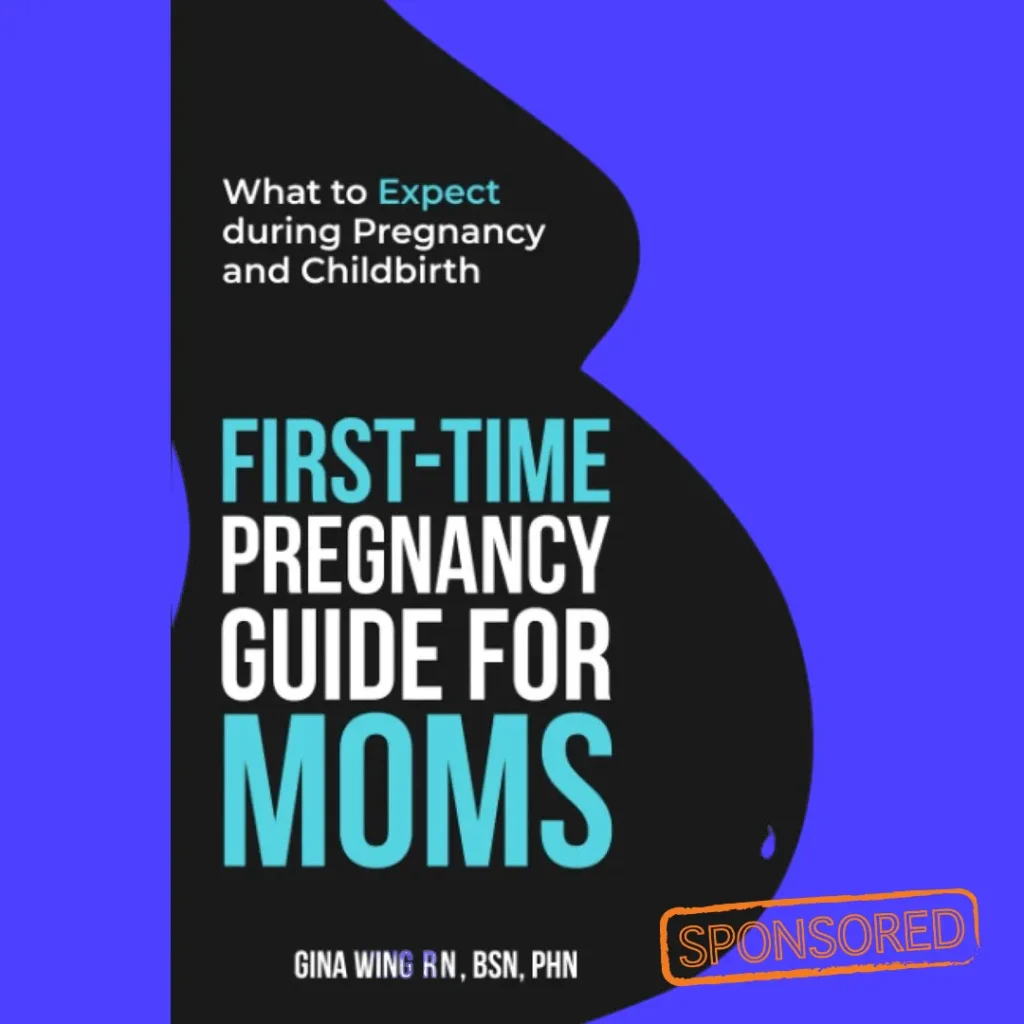Stay Fit and Healthy During Pregnancy
As the pregnancy test turns positive and you embark on this incredible journey of nurturing a new life, questions about how to Stay Fit and Healthy During Pregnancy inevitably arise.
Imagine having the energy to embrace each trimester with vitality, preparing both your body and mind for the miraculous adventure ahead.
Staying fit and healthy during pregnancy isn’t just a beneficial choice; it’s an empowering commitment to yourself and your baby.
While age-old myths might suggest taking it easy, modern research has illuminated how maintaining a balanced routine of exercise and nutrition can enhance not only your well-being but also contribute positively to your baby’s development.
From gentle yoga sessions that soothe both body and spirit to nutrient-packed meals that fuel two lives at once, staying fit and healthy during pregnancy involves a harmonious blend of physical activity and mindful eating.
This article will guide you through practical tips, expert advice, and inspirational stories from other expectant mothers who have reaped the benefits of staying active during these transformative months.
So lace up those sneakers—or slip into some comfy maternity leggings—and get ready to discover how you can cultivate strength, resilience, and joy throughout your pregnancy journey!
Pregnancy is a transformative and beautiful experience for many women, but it also comes with its own set of challenges.
One of the most important aspects of a healthy pregnancy is maintaining a proper level of fitness and overall health.
Staying fit and healthy during pregnancy not only benefits the mother, but also the developing baby.
It can help reduce the risk of complications during pregnancy and childbirth, as well as promote a faster recovery postpartum.
In addition, staying active and healthy can also improve mood, energy levels, and overall well-being during this special time in a woman’s life.
In this article, we will explore the various ways in which women can stay fit and healthy during pregnancy.
We will discuss the importance of regular exercise, proper nutrition, and adequate rest.
We will also provide tips and guidelines for safe and effective workouts during each trimester.
Additionally, we will address common myths and misconceptions about exercise during pregnancy, and provide evidence-based recommendations for maintaining a healthy lifestyle throughout this unique journey.
By prioritizing fitness and health during pregnancy, women can ensure a smoother and more enjoyable experience for themselves and their growing baby.
Table of Contents Stay Fit and Healthy During Pregnancy
Consult with prenatal healthcare provider
It is crucial to prioritize regular consultations with your prenatal healthcare provider throughout the course of your pregnancy.
Your healthcare provider plays a significant role in monitoring your health and that of your developing baby.
Through these consultations, your provider can offer personalized advice, guidance, and necessary medical interventions to ensure a smooth and healthy pregnancy journey.
They can also address any concerns or issues that may arise, providing you with the support and information needed to make informed decisions for both you and your baby’s well-being.
Consulting with your prenatal healthcare provider allows for the timely identification and management of any potential risks or complications, promoting a safer and healthier pregnancy experience.
Engage in safe prenatal exercises
Participating in safe and appropriate prenatal exercises during pregnancy can offer numerous benefits for both you and your growing baby.
These exercises, tailored to accommodate the changes your body undergoes during pregnancy, can help strengthen your muscles, improve your posture, and enhance your overall physical well-being.
Engaging in regular prenatal exercise routines can also promote better circulation, reduce the likelihood of experiencing discomforts such as back pain and swelling, and contribute to a smoother labor and delivery process.
It is essential to choose exercises that are safe and suitable for pregnancy, avoiding high-impact activities and ensuring proper hydration and nutrition before and after workouts to support your body’s changing needs during this special time.
Always consult with your prenatal healthcare provider before starting any new exercise regimen to ensure it aligns with your individual health status and pregnancy condition.
Maintain a balanced, nutritious diet
To support your overall health and well-being during pregnancy, it is crucial to maintain a balanced and nutritious diet that provides essential nutrients for both you and your developing baby.
Ensuring that your meals consist of a variety of fresh fruits and vegetables, whole grains, lean proteins, and healthy fats can help meet your increased energy and nutrient requirements.
Incorporating foods rich in calcium, iron, folic acid, and other vital nutrients can support your baby’s growth and development while also aiding in the maintenance of your own health.
Additionally, staying hydrated throughout the day is essential, so aim to drink an adequate amount of water and limit sugary beverages.
By making mindful and nutritious food choices, you can optimize your health and promote a positive pregnancy experience.
Remember to consult with your healthcare provider or a registered dietitian for personalized dietary recommendations tailored to your specific needs during this important time.
Stay hydrated to ensure health
Adequate hydration is fundamental for maintaining optimal health and well-being, especially during the transformative journey of pregnancy.
Water plays a vital role in supporting essential bodily functions, such as nutrient transportation, digestion, and temperature regulation.
Proper hydration aids in the prevention of common pregnancy-related discomforts like constipation and swelling, while also promoting healthy circulation and kidney function.
Additionally, staying well-hydrated can help alleviate fatigue and enhance overall energy levels, contributing to a more comfortable and enjoyable prenatal experience.
Remember to drink water regularly throughout the day and listen to your body’s signals for thirst, as hydration is key to supporting both your own health and the growth and development of your baby.
Consult with your healthcare provider for personalized guidance on maintaining proper hydration levels during pregnancy.
Monitor weight gain appropriately
Throughout pregnancy, it is essential to monitor weight gain appropriately to ensure both the well-being of the mother and the healthy development of the baby.
While weight gain is a natural aspect of pregnancy, excessive or inadequate weight gain can pose risks to both the mother and the baby.
Healthcare providers recommend tracking weight gain based on individual pre-pregnancy BMI (Body Mass Index) to maintain a healthy balance.
Consistent monitoring of weight gain enables early detection of any potential issues and allows for timely intervention if necessary.
By keeping track of weight gain within recommended guidelines and seeking guidance from healthcare professionals when needed, expectant mothers can promote a healthy pregnancy and minimize the chances of complications related to excessive or insufficient weight gain.
Get adequate rest and relaxation
Ensuring adequate rest and relaxation is crucial during pregnancy to support both the physical and emotional well-being of expectant mothers.
Proper sleep and relaxation play a significant role in reducing stress levels, promoting hormonal balance, and supporting the body’s overall health.
Incorporating relaxation techniques such as deep breathing exercises, prenatal yoga, meditation, and mindfulness practices can help alleviate pregnancy-related discomfort, enhance sleep quality, and reduce anxiety.
By prioritizing sufficient rest and relaxation, expectant mothers can optimize their health, boost energy levels, and better cope with the physical and emotional changes that accompany pregnancy.
It is advisable to create a calming bedtime routine, establish a comfortable sleep environment, and listen to your body’s signals for rest, ensuring that adequate relaxation is integrated into daily activities.
Avoid harmful substances and activities
As you navigate through the precious journey of pregnancy, it is paramount to safeguard the well-being of yourself and your developing baby by avoiding exposure to harmful substances and activities.
Steer clear of tobacco, alcohol, and illicit drugs, as their consumption can lead to severe health complications for both you and your unborn child.
Additionally, be vigilant about exposure to environmental toxins and chemicals, such as lead, mercury, and certain cleaning agents, which can pose risks to fetal development.
Engage in open dialogues with your healthcare provider regarding any medications or supplements you are considering, ensuring their safety for the pregnancy.
By making informed choices and prioritizing a healthy lifestyle, you can create a nurturing and secure environment for your baby’s growth and development.
Prioritize mental wellness with self-care
Nurturing your mental wellness should be a cornerstone of your pregnancy journey, as it significantly impacts your overall health and the well-being of your developing baby.
Self-care practices play a crucial role in managing stress, anxiety, and emotional fluctuations that commonly arise during this transformative period.
Allocating time for relaxation, mindfulness activities, and hobbies that bring you joy can help alleviate mental strain and promote a positive mindset.
Establishing a support network of trusted individuals, including healthcare professionals, family, and friends, can provide you with emotional reassurance and guidance.
Remember, prioritizing your mental wellness through self-care not only benefits you but also contributes to a harmonious and balanced pregnancy experience for both you and your baby.
In conclusion, maintaining a healthy lifestyle during pregnancy is crucial for both the expecting mother and the developing baby.
By incorporating regular physical activity, a balanced diet, and adequate rest, pregnant women can support their overall well-being and reduce the risk of complications.
Consulting with healthcare providers, following their recommendations, and staying informed about safe exercises and nutrition can help ensure a smooth and healthy pregnancy journey.
Remember, each pregnancy is unique, so it is essential to listen to your body, prioritize self-care, and seek professional guidance when needed to promote a positive and fulfilling pregnancy experience.
FAQ
What are some safe and effective exercises for pregnant women to stay fit during pregnancy?
Some safe and effective exercises for pregnant women include walking, swimming, prenatal yoga, and low-impact aerobics.
These exercises help in maintaining overall fitness, improving circulation, reducing back pain, and managing weight gain during pregnancy.
It is important to consult with a healthcare provider before starting any exercise routine to ensure it is safe and appropriate for individual circumstances.
Listen to your body, stay hydrated, and avoid activities with a high risk of falling or abdominal injury.
Regular exercise during pregnancy can promote a healthier pregnancy, easier labor, and faster postpartum recovery.
How can pregnant women maintain a healthy diet to support their own health and the health of their developing baby?
Pregnant women can maintain a healthy diet by focusing on nutrient-dense foods like fruits, vegetables, whole grains, lean proteins, and dairy products.
They should aim to eat a variety of foods to ensure they are getting all essential nutrients, stay hydrated, and limit processed foods high in sugar and unhealthy fats.
Consulting with a healthcare provider or nutritionist can help create a personalized meal plan that meets their specific needs during pregnancy.
Regular prenatal vitamins and adequate hydration are also crucial for supporting the health of both the mother and the developing baby.
What are some common misconceptions about exercise and diet during pregnancy that pregnant women should be aware of?
Some common misconceptions about exercise and diet during pregnancy include the belief that pregnant women should eat for two (they only need about 300 extra calories per day), that exercise is dangerous for the baby (it’s actually beneficial for both mom and baby), and that weight gain should be minimized (healthy weight gain is important for the baby’s development).
Pregnant women should consult with their healthcare provider for personalized recommendations and follow a balanced diet and safe exercise routine to support their health and the health of their baby.
How important is it for pregnant women to stay hydrated and how much water should they aim to drink each day?
It is crucial for pregnant women to stay hydrated as proper hydration supports the baby’s development and helps prevent complications such as dehydration and urinary tract infections.
Pregnant women should aim to drink at least 8-10 cups (about 2-2.
5 liters) of water per day, adjusting for individual factors like climate, physical activity, and overall health.
Ensuring adequate hydration is vital for maintaining the health and well-being of both the mother and the developing baby.
What are some tips for managing stress and maintaining emotional well-being during pregnancy to support overall health and well-being?
During pregnancy, it is crucial to practice self-care activities like yoga, meditation, deep breathing exercises, and gentle exercise to reduce stress levels.
Seeking support from loved ones, joining prenatal classes, and talking to a counselor can also help manage emotions.
Eating a healthy diet, getting enough rest, and staying hydrated are essential for overall well-being.
Engaging in creative outlets, maintaining a positive mindset, and setting realistic expectations can further support emotional health during this time.
Prioritizing self-care and seeking professional help when needed can greatly contribute to a healthy pregnancy journey.







